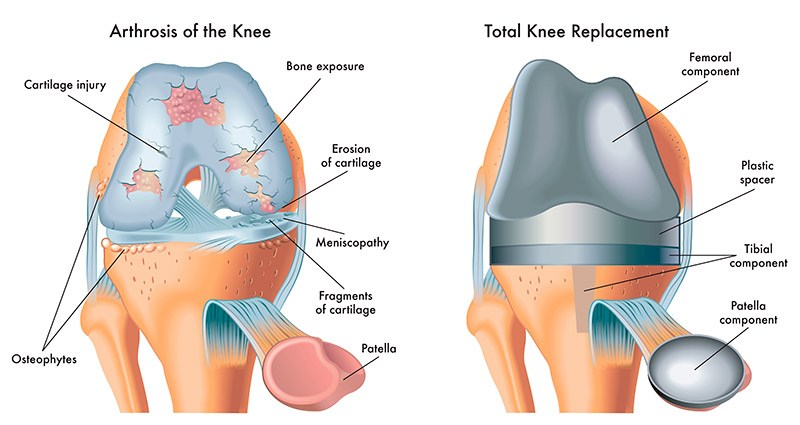Total Knee Replacement

What is it : Knee arthritis is a painful degenerative condition of the Knee. Common causes are age related degeneration known as osteoarthritis, post traumatic arthritis and inflammatory arthritis. It produces a stiff and painful knee which can make walking and other daily activities difficult.
Management : Knee arthritis can be treated nonoperatively or operatively. Dr Unsworth-Smith will assess and diagnose your arthritis and decide whether surgery is an option for you. Nonoperative management includes pan relieving medication, physiotherapy, activity modification and weight loss.
In end stage arthritis, a Total Knee Replacement is the surgical management of choice. A thorough assessment is required to decide whether a Total Knee Replacement is the correct operation for you.
The knee replacement is made up of two pieces of metal (made of a cobalt chromium alloy) that resurface the Femur and Tibia bones. In between the metal is a polyethylene (plastic) insert. Knee replacement surgery involves an incision over the front of the knee. Computer Navigation is used to identify accurate Bone cuts and prosthesis placement. After the appropriate amount of bone and cartilage have been removed, the metal and polyethylene components are then inserted and the wound is closed.
Post-operative : Patients often require 2-3 nights in hospital. You will have a spinal anaesthesia and a nerve block (local anaesthetic to numb the leg) which will help control pain after the surgery. You will begin physiotherapy immediately after your surgery. At 2 weeks your wound will be reviewed, and at 6 weeks a repeat Xray will be performed.
Return to most activities will be between 3-6 months with full recovery by 12 months.